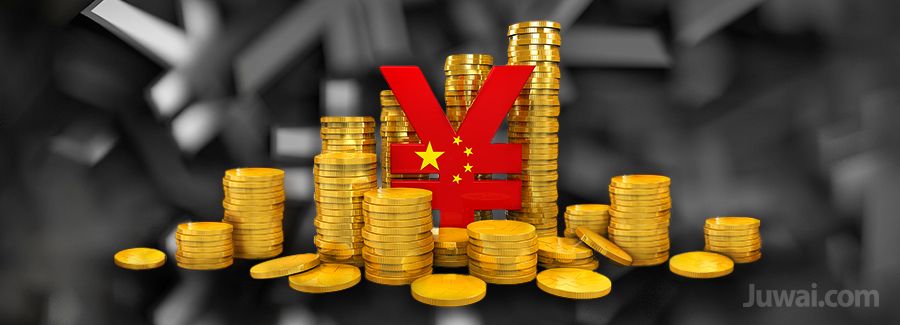亚洲新闻
- 主页
- 新闻
- 亚洲新闻
You've successfully copied this link.
What China's eased capital controls mean for Chinese buyers

China has relaxed its capital controls for the first time this year, scrapping two rules meant to bolster the renminbi (RMB).1
The People’s Bank of China (PBoC) – China’s central bank – recently abolished a rule to reserve a 20% deposit on forward sales of foreign exchange, which was originally set in 2015 to curb capital outflows and stabilise the Chinese yuan.2
Additionally, the PBoC also ditched a requirement for banks to hold reserves against RMB deposits held in Hong Kong and other offshore centres.1, 2
This means the RMB exchange rate will be more flexible, and with further loosening expected in the near future as China steps up plans to further liberalise capital controls, that’s good news for Chinese investors looking to invest in the global property market.
Plans for new reforms after the 19th National Congress
Already, China’s State Administration of Foreign Exchange is seeking approval for a plan to let Chinese invest in securities traded overseas, and the plan looks set to be approved after the upcoming 19th National Congress in Beijing on 18 October 2017.3, 4
This is part of an emerging campaign on the part of government ministries to find ways to push for further reforms to China’s financial system and open up China’s capital account, thus making it easier for individuals and companies to invest overseas.
That’s why the PBoC is reported to have drawn up a list of new reforms, including allowing higher stakes for foreign investors in domestic financial firms and offering card-clearing functions for foreign banks, to further open up China’s financial sector to foreign businesses and promote cross-border investment.5
Reforms indicate a subtle, but significant change in attitude
The shifting focus toward new reforms represents a change in the Chinese government’s tone from earlier in 2017, whereby the government was focused on introducing a series of new directives to impose extra scrutiny on overseas deals after Chinese firms channeled a record-breaking $219.3 billion into outbound deals in 2016.6
However, while such measures were effective in placing further scrutiny on huge investments overseas, they have not stemmed the flow of Chinese capital being invested in overseas assets.
Chinese companies put $48.19 billion into overseas investments in H1 2017, compared with $70.2 billion in H1 2016.7
Still, we see the early 2017 moves as a short-term pause rather than a total clampdown on outbound investment. The latest news about pending reforms to China’s financial system, plus proposals to allow Chinese to invest in a wider range of products, show that the leadership is focused now on its long-term goal of easing capital controls further.
Concrete moves toward this goal will also likely speed up after China’s National Congress meeting, which will see a raft of personnel changes in China’s senior government, as well as likely see Chinese President Xi Jinping build a strong team to push through reforms.
With a stronger power base emanating from the meeting, many observers – including the Economist Intelligence Unit8 – are expecting President Xi Jinping’s government to release a steady stream of economic reforms that will lay the foundation for China’s growth in the coming years.
Chinese buyer demand to see a boost
With these processes in play, we see a strong outlook for continued Chinese demand for overseas real estate, augmented by the government’s gradual approach to a more relaxed approach to overseas investment.
Despite the early-2017 rule changes, Chinese buyers have remained active in overseas markets, with Bloomberg reporting that buyers have adapted to the rule changes by focusing on lower-priced properties and using mortgage financing.9
Having said that, we foresee this new, concerted push toward financial reform will amplify Chinese property investments abroad, and bode for a stronger flow of deals in the coming years.
After all, China will soon be home to 1.87 million Chinese high net worth individuals (HNWIs) – most who are keen to broaden their investment horizons overseas – so agents and developers worldwide would do well to pay heed to this.
Sources: 1. Your Investment Property: China’s central bank relaxes capital controls; 2. China Daily: State to relax RMB exchange rate rules; 3. Bloomberg: China may be set to loosen outbound investment; 4. NPR Parallels: China has set Oct. 18 for its Communist Party Congress. Here’s what to expect; 5. SCMP: Chinese Central Bank said to be drafting fresh package of reforms for more financial market opening; 6. SCMP: Chinese outbound M&A activity set to cool this year after record 2016; 7. CNBC: China H1 outbound investment plummets as capital outflow controls bite; 8. EIU: Strong leader, tough decisions: What China's party congress means for economic policy; 9. The National: Crackdown on overseas real estate buys force Chinese buyers to smaller cities;
喜欢这篇文章?免费注册,获取居外亚洲市场的最新资讯!
排序
- 2025
- 2023
- 2022
- 2021
- 2020
- 2019
- 2018
- 2017
- 2016
- 2015
- 2014
- 2013
- 2012
标签
- australia
- china
- chinese buyers
- investment
- juwai
- property
- real estate
- residential
- united kingdom
- united states
Thank you for subscribing to Juwai News!
Sign up for a Juwai Account now for free to enjoy FREE download access to country-specific reports on Chinese property investments.
Do you want to sign up now? Or continue if you have already signed up or you will do it later.


